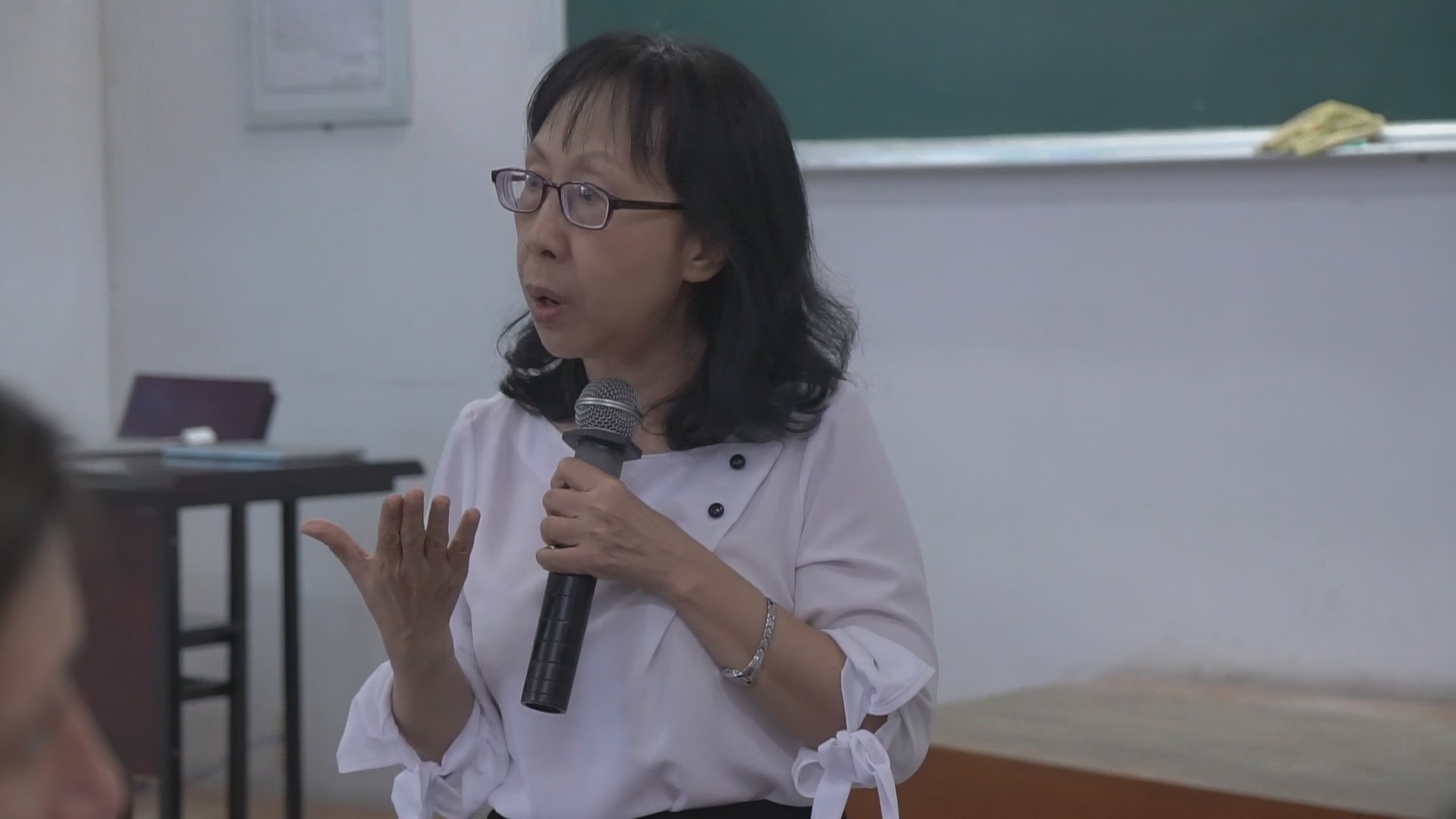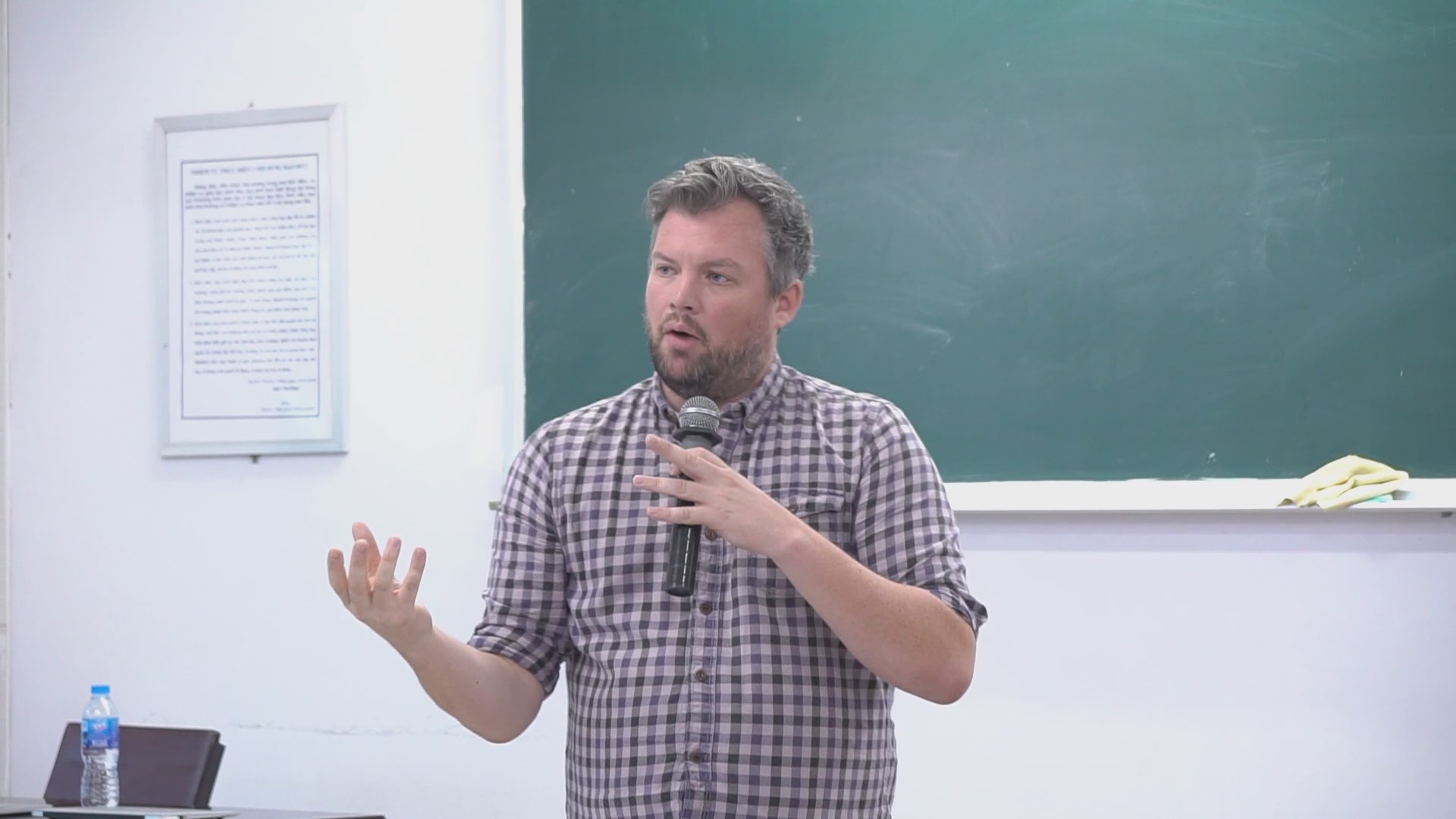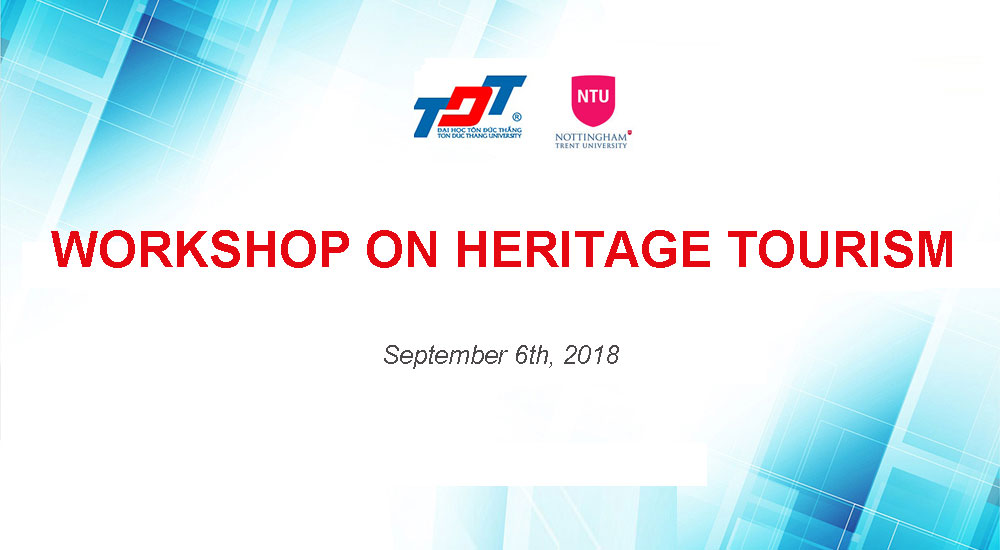"Prison heritage at ConSon and Beyond"
Five international speakers, local staff from the Faculty of Social Sciences and Humanities, three of whom joined the exploratory research visit to Con Dao, and over 100 students and colleagues from other parts of TDTU joined the Prison Heritage Workshop on campus on Thursday 8 September.
Enthusiastic discussion followed presentations on dark tourism and the increasingly varied forms of memory and historical commemoration, for travellers, visitors and hosts. The topic within dark tourism was the Prison Museum, dark because often the heritage involved here includes troubling and difficult memories. For example, the French used Con Dao to silence opponents, torturing and murdering those who sought freedom from the colonial oppressor. The tiger cages on Con Dao are the well known example of the worst kind of prison conditions, all too familiar in news reports about Abu Ghraib in Iraq or Bhagram, Guantanamo or similar. At the same time, the Con Dao prison is also known for the heroic story of comrade Ton Duc Thang, fifteen years as a prisoner and organiser of the party school within the prison.
Charles Forsdick gave the first paper, setting out a wide research context for dark heritage tourism. Charles is the James Barrow Professor of French at the University of Liverpool and his presentation was of the key concepts from his project on 'Dark Tourism in Comparative Perspective: Sites of Suffering, Sites of Memory'. His examples ranged from Australia to New Caledonia, and from French Guyana to San Fancisco. Of particular interest were the fine distinctions he tried to make about the differences between visiting former prisons which have largely historical memory and meaning, and those sites where the prison is still operative.
Dr Katharina Massing spoke next on ecotourism aspects of heritage. She is a lecturer in Museum and Heritage Development at Nottingham Trent University and her presentation showed us how she is particularly interested in holistic approaches to heritage management, as can be seen in the ecomuseums she described, where she argued that the combined interpretation of both natural and intangible heritage resources could allow communities to develop these sites in a sustainable way.
The first session was completed with a very practical case presented by Dr Maryse Tennant from Canterbury ChristChurch University in the UK. Reporting on the history of the former Canterbury Prison, she told us that it was purchased by the University in 2013 and discussions were currently underway about how to develop the site. She introduced questions of participation by the local community, the demands and pressures on university space and, for example, the need for the university to make the best use of the site for its students, and the rapid development of parts of the site, the university having already begun new buildings in the grounds while still working up plans develop plans for a heritage centre in the older heritage listed part of the main prison building.
After a break where visitors had a chance to talk about these ideas informally, the second session was more closely related to the visit to Con Dao that the research group had just experienced. That is, it was not only a report on the previous few days visit by the presenters and some other colleagues from TDTU such as Associate Professor Mai Le and the immediate past Dean Dr Bui Thuy, but a discussion of how to include Con Dao in the wider international project. In this second session, our colleague Dr Thi Kim Phung Dang set out some of the wider considerations to be made in thinking about dark heritage in Vietnam, in the specific conditions of the history of prisons and sites of violence in the South of Vietnam, and near the border, as well as particularly the context of the Con Son prison on Con Dao. Con Dao currently is a favourite for high-end touristic promotion in terms of beach resorts and health spas rather than the prison – though of course there is a well known prison museum and several marked heritage sites, not least pertaining to Ton Duc Thang, but also other heroes of Vietnam, such as Vo Thi Sau.

Continuing this thematic, Dr Dang's partner in a forthcoming British Academy Newton Fund Fellowship Dr Sophie Fuggle was the next speaker. Also from Nottingham Trent, she currently holds a UK Arts and Humanities Research Council fellowship for a project looking at multisite prison heritage in French Guiana and New Caledonia. Her work understands multi-site as both several different prisons and the different parts of the same prison, and also how a prison's use and character – should one say reputation – changes over time. It was Dr Fuggle who organised the workshop so this paper was a key to starting to develop a larger research programme around dark tourism in Vietnam. Of course questions about who sees which aspect as dark or not are relevant, as were th questions from the audience, especially the students, who engaged with Dr Fuggle's ideas.

The last speaker was the photographer Charles Fox. Charles is a British-born but currently dividing his time between the UK and Cambodia, where he has been working since 2005. His long-term projects are focusing on the legacy of conflict and colonialism, looking at its multiple manifestations and how the present is affected by the rulings and actions of the past. His work has received wide international publicity, on the BBC, The Sunday Times, GEO Germany, The National Geographic, Time magazine, The Washington Post, and WIRED, among others. Charles lectures in Photography at Nottingham Trent University.

All in all the presentations were well received and thought provoking. There was time for discussion at the end of each of the sessions an welcome questions and critical points made by both academic colleagues and from both the tourism and the sociology students. This workshop was organised by Dr Sophie Fuggle who had applied for and won funding for the travel from Nottingham Trent University in the UK. The workshop was welcomed by Dr Đỗ Xuân Hà and chaired by Dr John Hutnyk, both of the Faculty of Social Sciences and Humanities, and all agreed the format was conducive to discussion and further meetings with such an engaging level of scholarship should be planned regularly.
Thanks are due to Nam for logistical support, and to the filmmakers for recording the event and making the sample video which captures a little of what went on at the workshop. Stay tuned for news of Charles Fox's photography from Con Dao, and for publications to come from the other speakers.
- Log in to post comments

